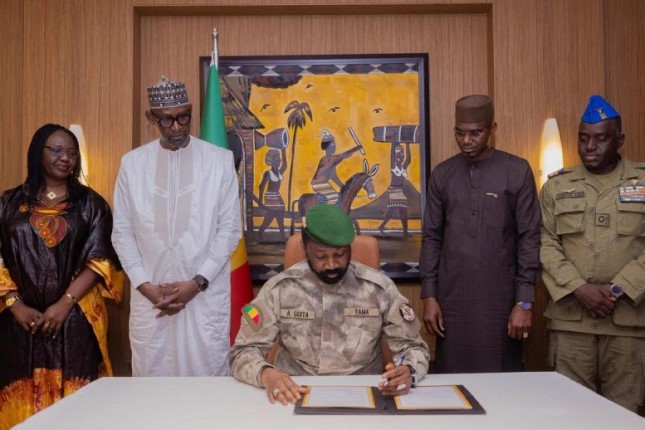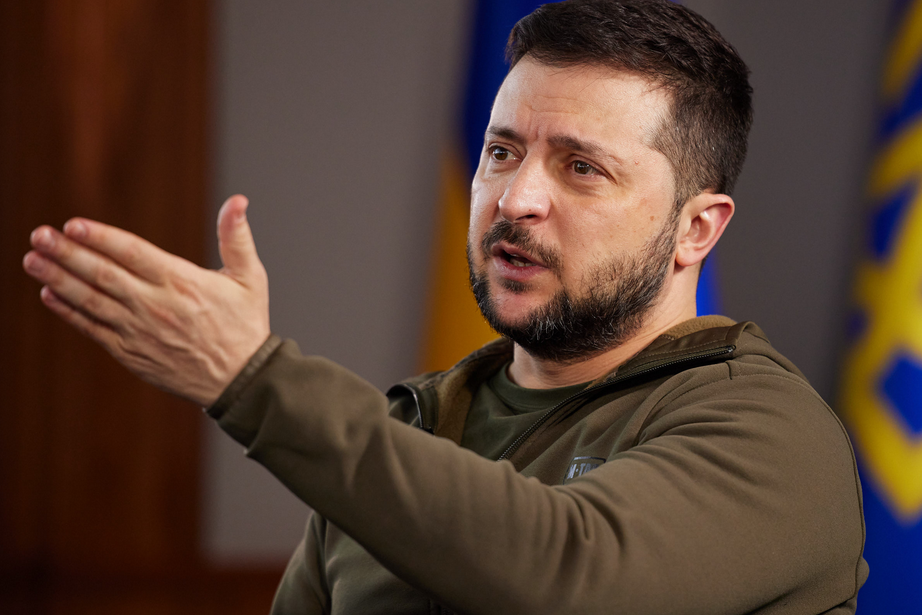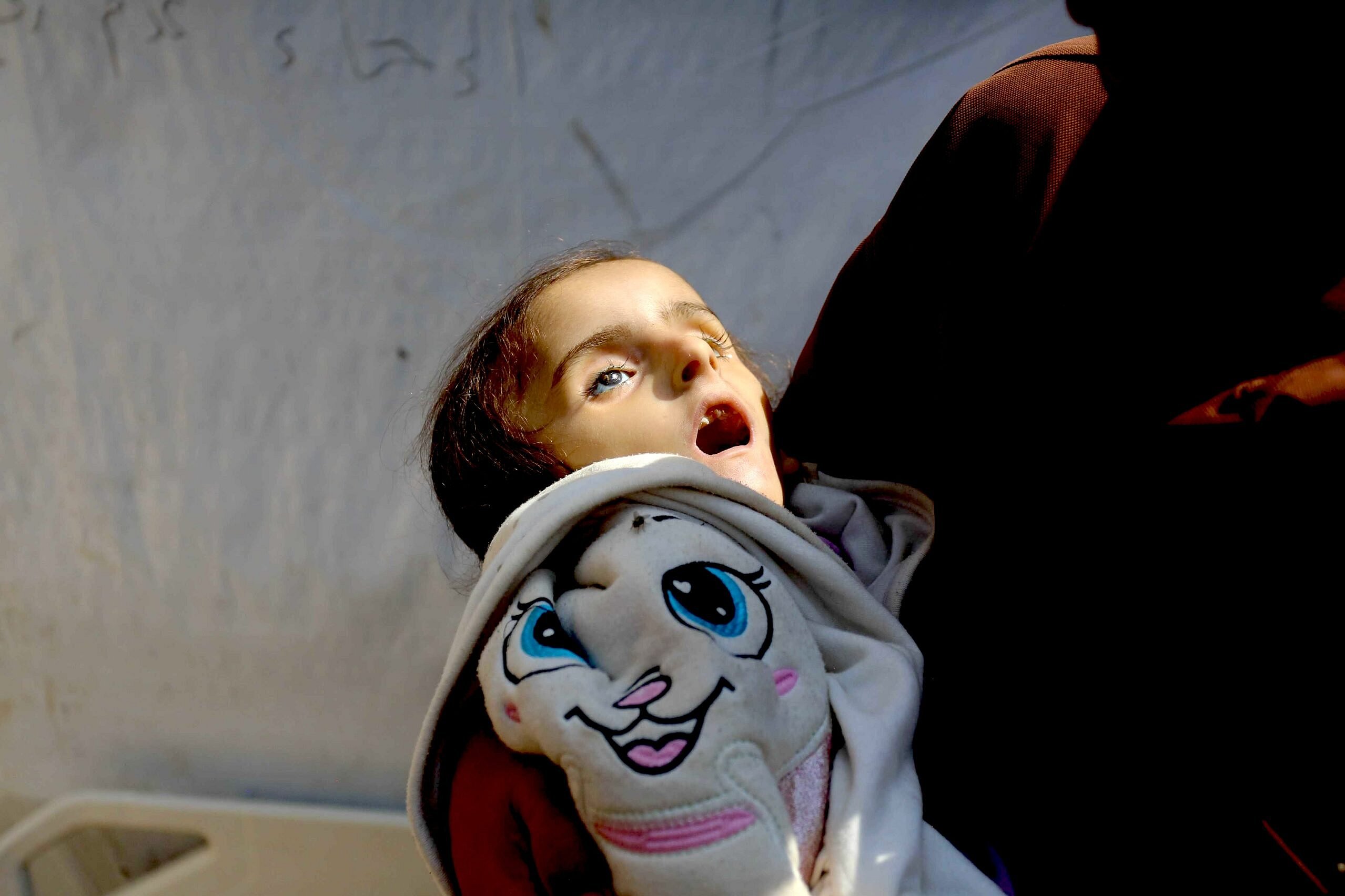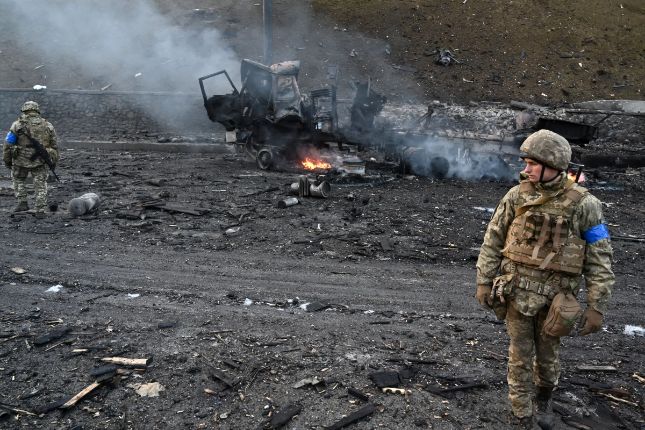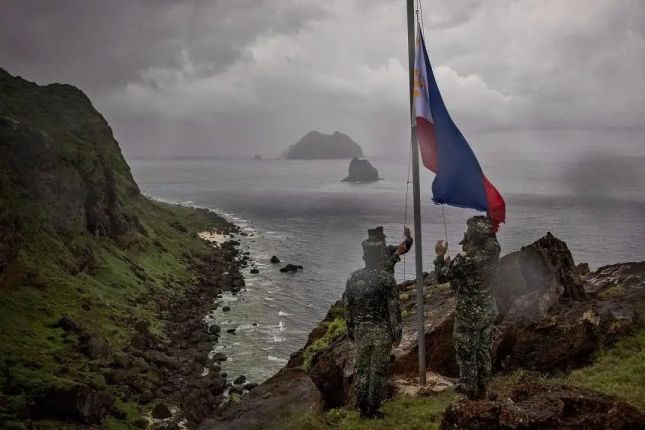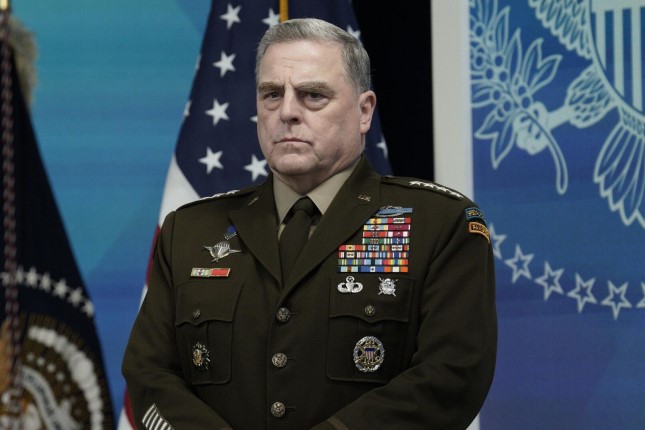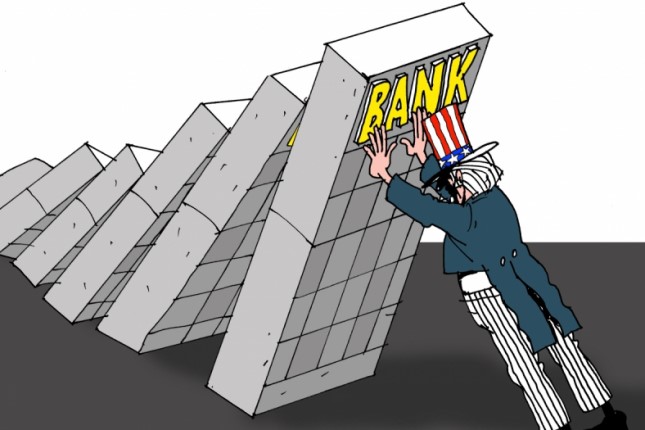Niger, Mali, and Burkina Faso have signed a charter establishing a mutual defense pact, dubbed the Alliance of Sahel States, on Saturday. The pact commits the three sides to support one another, including with military forces, in response to any external aggression or armed rebellion. It has been described as a “collective [defense] and mutual assistance framework” by Mali military leader Assimi Goita.
The agreement binds the signatories to help prevent or settle armed rebellions in each other’s countries. Moreover, it declares that “Any attack on the sovereignty and territorial integrity of one or more contracted parties will be considered an aggression against the other parties.” Mali’s Defense Minister Abdoulaye Diop elaborated, saying the alliance shall be a “combination of military and economic efforts between the three countries,” adding “our priority is the fight against terrorism.”
This follows the July 26 military coup in Niamey, which overthrew the regime of President Mohamed Bazoum. The post-coup junta is led by Gen. Abdourahamane Tchiani.
Before its rhetoric was moderated, the Economic Community of West African States (ECOWAS) threatened to launch a miliary intervention to reinstall Bazoum, who is currently living under house arrest. The plan to intervene was backed by Paris. After these war threats were issued, Ouagadougou and Bamako warned an invasion in Niger would be treated as a “declaration of war” against them as well. France, Niger’s former colonial ruler, has about 1,500 troops stationed in the country and refuses to recognize the junta.
The new leadership has also denounced military cooperation agreements with Paris and demanded French forces leave the country along with French ambassador Sylvain Itte. French President Emmanuel Macron will not accede to the demands, even though he said on Friday, “As we speak, we have an ambassador and diplomatic staff who are literally being held hostage in the French embassy… [The junta is] preventing food deliveries… He is eating military rations.”
There have been reports that talks are ongoing between Paris and the coup junta in Niamey about withdrawing “certain military elements.” Although, that may not be enough. For weeks, tens of thousands of Nigeriens have protested outside a French military base in the capital city ordering these troops to leave their country now. Over the weekend, thousands returned for yet another demonstration.
The US has roughly 1,100 troops deployed in Niger where it also maintains multiple drone bases. Since the coup took place about 50 days ago, counterterror operations and joint training operations have been indefinitely put on hold without being resumed. Washington has, however, restarted its intelligence, surveillance, and reconnaissance flight operations in the country.
Per the Pentagon, this is being done to facilitate the relocation of an unspecified number of US military personnel and assets from Air Base 101 in Niamey. They are moving 570 miles to the northeast to Agadez city’s Air Base 201.
Air Base 201 is the “the linchpin of the US military’s archipelago of bases in North and West Africa and a key part of America’s wide-ranging intelligence, surveillance, and security efforts in the region,” according to investigative journalist Nick Turse who specializes in covering US military operations across the African continent.
General James Hecker, commander of US Air Forces in Europe and Africa, recently told reporters that Washington is still waiting to see if a compromise can be made with the junta before the Air Base 201 itself is relocated to another country. The “diplomatic solution is going pretty well right now,” he said. The Joe Biden administration has not officially deemed the situation in Niamey a coup yet. If the White House did, it would have to cut off all military assistance.
Source: AntiWar.
